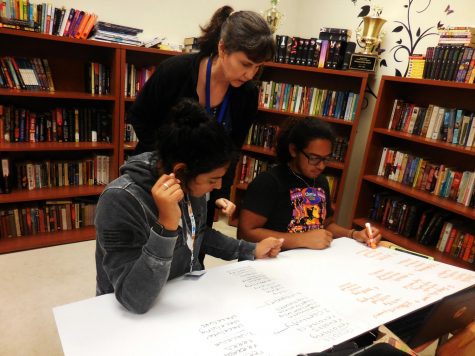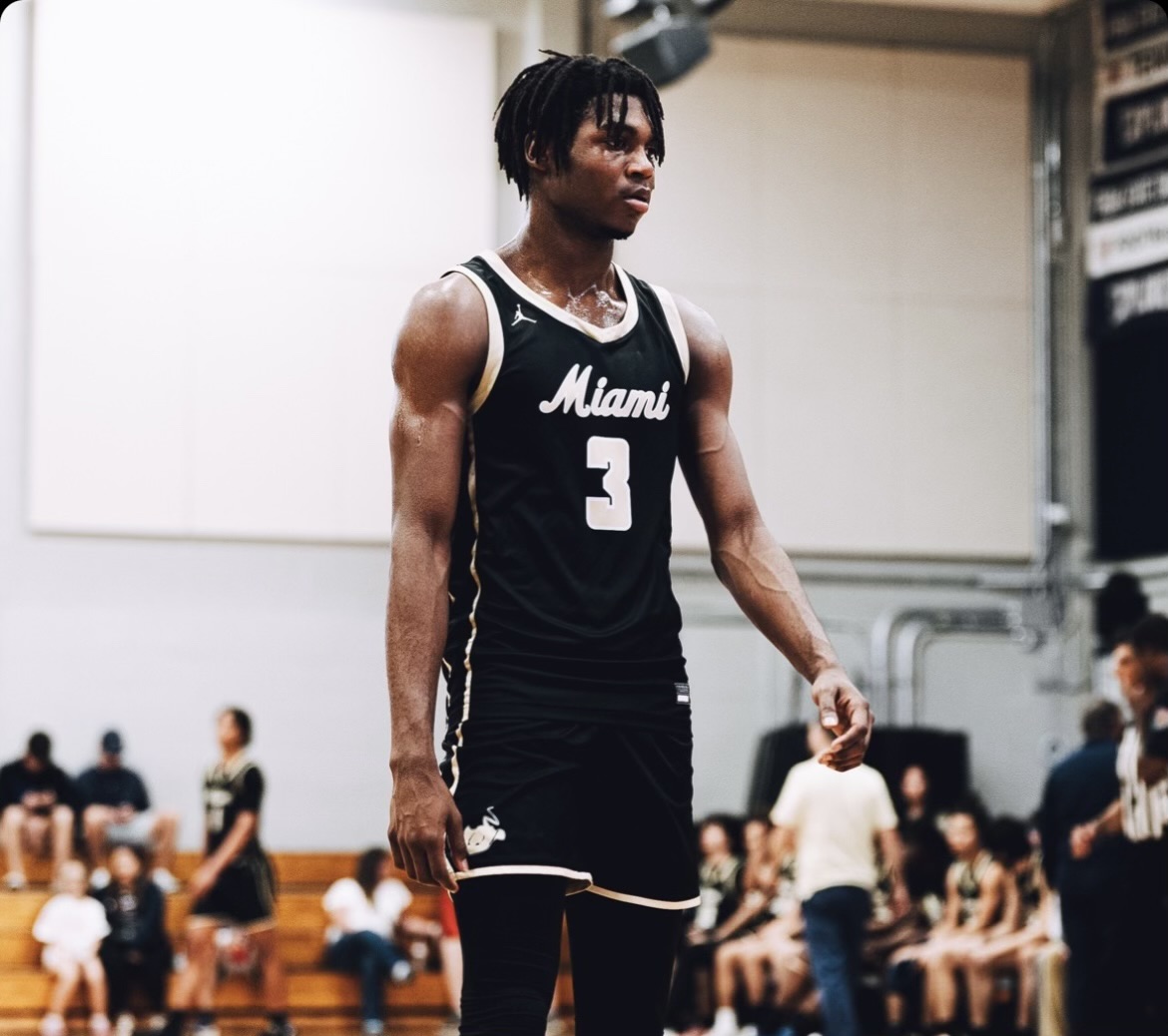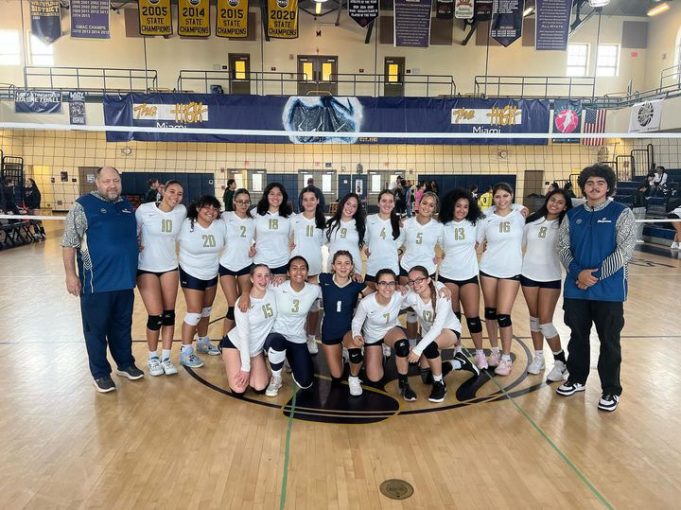Get Reading And Ready For The Real World
February 27, 2019
By Alfred Cardenas
Our languages, our cultures, our history—all the things we know have come through reading. So everytime you read, you are allowing yourself to be more prepared to face the world out there. There are all types of things to read from fiction to romance to history.
However, it seems as if people are reading less. 10 grader Jade Santiago said, “People are not buried in books or texts anymore. They’ve buried their attention into social media and fake or unimportant news.”
More social media, more visuals and less reading
Social studies teacher Ms. Delgado agrees. “The type and length of material read have changed due to technology,” she said. “As social media has become more prevalent, I believe people are now reading less and depending more on visual information.”
In fact, many people have developed the habit of replacing traditional books with online reading. Reading coach Ms. Herris highly believes that social media has caused a negative impact on younger generations and not just with their ability to read. She believes that social media has also changed the way students interact because they have become more isolated and less socially capable to judge whether a source presented to them on the internet is reliable. “I’ve seen the difference within my 6 years of teaching where kids don’t seem as capable of approaching a stranger and introducing themselves,” she said. “It’s causing them to hide behind the technology.”

Technology improves the reading experience
On the other hand, some students believe that technology has only expanded the way they read and use resources. Senior Valentina Figuera said, “I think that social media positively helps students because it allows them to have more resources to help with their reading skills. Also, online reading allows students to have a larger catalog of free books to access at their finger tips.”
Benefits of being a reader
Reading is not just lines of letters. Reading can bring tons of benefits and skills. “When you read, you strengthen your ability to understand higher level text, you are able to express and articulate yourself better, and it’ll broaden your perspectives about the world/ social issues,” said senior Thais Maradiaga. Senior Jody Martinez added, “Students who read develop critical thinking skills through complex pieces of text, as they also learn more about culture, vocabulary, and writing skills.”
English teacher Ms. Armas said students who read every day are more likely to participate and engage with the class because they have more topics of interest to discuss. “Students that are active readers will tend to do better academically because they will not struggle as much with reading for understanding. A person that does not read well or does not like to read will tend to be put off by assignments that involve reading,“ she said.
Smart in school, but not a reader?
It is possible, however, to be academically oriented and not be an active reader. Ms. Herris said, “Some students aren’t necessarily active readers, but they are still academically inclined because their areas of strength lie in the math and science or vocational areas. It doesn’t mean that they are not academically inclined or intelligent because they are not fluent readers. It’s depending on where their intelligence is and their interests are. However, typically if you are more studious and into reading, you are more dedicated to following through with assignments and more likely to be successful in graduate and college degree programs.”
Why not read more during school time?
The school district develops the reading curriculum that teachers must implement in the classrooms. However, some teachers and students believe that in order for students to constantly progress in their reading, the curriculum must be changed in some ways. English teacher Ms. Ransom said she would encourage students to read 20-30 minutes every school day. “The district recommends that students read 30 minutes each day, but most students are busy with extracurricular activities, homework, and jobs,” she said. “If we had a designated time during the school day, students would read more and become better readers.”
Some students also see the benefit of reading while in school. “It’s important to read in school because some students don’t have the time or the drive to do the research or read on their own. So it’s crucial that they attain this education in school,” said senior Lisbeth Chavarria.
How to get students to read more
When teachers and students communicate to find a text that would be both entertaining and productive to the class, then the interest to read starts to develop more. “The students are the ones reading and learning the book,” said senior Nathaly De Leon. “Teachers should ask for feedback so the learning experience isn’t dreaded.”
Math teacher Mr. Monteagudo, whose wife is an English teacher, adds, “Teachers want input, so they can find material the student can relate to or what to read, so they are more involved in the students’ education.”
It is important to find books that students find interesting, especially when kids are not active readers. Ms. Armas said, “High Interest-Low readability books/articles are the best. A high school student reading at a 2nd grade level doesn’t really want to read stories about how the tooth fairy left them a dollar. They want to read things their age, but the vocabulary has to be on their reading level.”
Some students, however, place the responsibility for finding good books to read on their classmates. Senior Luoña Perez said, “Look for books online that match your interests. If you care about equal rights, or history, or even video games, there are books about the topics you enjoy. Find them and make time in your day to sit down and read at least a couple of pages every day.”
• 1984 by George Orwell.
• A Brief History of Time by Stephen Hawking
• A Heartbreaking Work of Staggering Genius by Dave Eggers.
• A Long Way Gone: Memoirs of a Boy Soldier by Ishmael Beah.
• The Bad Beginning: Or, Orphans! by Lemony Snicket.
• A Wrinkle in Time by Madeleine L’Engle.
• Selected Stories, 1968-1994 by Alice Munro.
• Alice’s Adventures in Wonderland & Through the Looking-Glass by Lewis Carrol.
• All the President’s Men by Bob Woodward and Carl Bernstein.
• Angela’s Ashes: A Memoir by Frank McCourt.
Source: Readers Digest <https://www.rd.com/culture/books-read-before-die/> |




